What is Stamp Duty?
Before we delve into the specifics of buyer stamp duty and additional buyer stamp duty in Singapore, it’s crucial to grasp the basic concept of Stamp Duty. Stamp Duty is a tax imposed on documents linked to the acquisition or leasing of property. If a document, such as a Sale & Purchase Agreement or Tenancy Agreement, is executed in Singapore, the buyer must pay this duty within 14 days of its date. However, payment must be made for documents signed abroad within 30 days of their arrival in Singapore.
Not only is it unlawful to utilise a document on which Stamp Duty hasn’t been paid, but it’s also vital to understand that only documents with paid Stamp Duty can be presented as evidence in court during disputes.
In Singapore, there are two main stamp duty when purchasing a residential property: Buyer’s Stamp Duty (BSD) and Additional Buyer’s Stamp Duty (ABSD).
So what is Buyer’s Stamp Duty?
Buyer’s Stamp Duty is tax paid upon accepting Option to Purchase (OTP) / Sale & Purchase Agreements (S&P). These documents (i.e., OTP or S&P) are prepared and signed when you buy or sell your property. Stamp Duty is payable on the actual or market price, whichever is higher. The buyer is responsible for paying the Buyer’s Stamp Duty. Where Seller’s Stamp Duty is applicable, the seller is responsible for paying Seller’s Stamp Duty.
Calculation of Buyer’s Stamp Duty:
PAYMENT SCHEDULE OF STAMP DUTY
So what is Additional Buyer’s Stamp Duty?
The Additional Buyer’s Stamp Duty (ABSD) is a tax levied on top of the existing Buyer’s Stamp Duty (BSD) when buying or acquiring property. It is computed on the purchase price as stated in the dutiable document or the property’s market value, whichever is the higher amount.
The Government introduced the ABSD on 8 December 2011 to moderate demand for residential property, ensuring that residential property remains affordable for Singaporeans and that prices move in tandem with economic fundamentals.
The ABSD rates were raised several times, the latest being on 27 Apr 2023, to promote a sustainable property market. The rates vary depending on the buyer’s profile as at the date of purchase or acquisition of the residential property.
For example, Singapore Citizens (SCs) buying their first property are not required to pay ABSD, but SCs buying their second property have to pay 20% ABSD. Foreigners buying any property in Singapore must pay an ABSD rate of 60%, except foreigners who are Nationals or Permanent Residents of Iceland, Liechtenstein, Norway or Switzerland and Nationals of the United States of America. These foreigners will be accorded the same Stamp Duty treatment as Singapore Citizens.
Entities (companies or associations) buying any property must pay an ABSD rate of 65%. Please note that these rates are applicable as of 27 April 2023 and may be subject to change.
For details of Stamp Duty remission for property, please visit IRAS | Common Stamp Duty Remissions and Reliefs for Property at a Glance.
With that, here’s the ABSD rates:
(Plus Additional 5% (non-remittable)5)
ABSD will be rounded to the nearest dollar, with a minimum duty of $1.
Foot Note:
1 Whether owned wholly, partially or jointly with others.
2 An Entity means a person who is not an individual. It includes the following:
- An unincorporated association,
- A trustee for a collective investment scheme when acting in that capacity,
- A trustee-manager for a business trust when acting in that capacity
- The partnership partners, whether or not any of them is an individual, where the property conveyed, transferred or assigned is to be held as partnership property.
3 Housing Developers refer to entities in the business of housing development (i.e. construction and sale of housing units) with respect to the subject property acquired. These include trustees for housing developers, which will continue to be subject to the same ABSD rate as Housing Developers.
4 As entities, Housing Developers will also be subject to the ABSD rate for entities as follows:
- For the period on or after 16 Dec 2021, Housing Developers will be subject to the ABSD rate of 35%.
Housing Developers may apply for remission of 35% ABSD, subject to conditions.
5 This 5% ABSD for Housing Developers is in addition to the 35% (on or after 16 Dec 2021) ABSD. This 5% will not be remitted and is to be paid upfront upon purchase of residential property.
6 Trustee refers to a trustee of any trust when acting in that capacity bt excludes the following:
- Trustee for a collective investment scheme when acting in that capacity;
- Trustee-manager for a business trust when acting in that capacity; and
- Trustee for a housing developer when acting in that capacity.
Enjoy what you have been reading? Join our mailing to get valuable insights delivered to your inbox today.
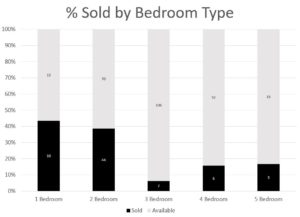
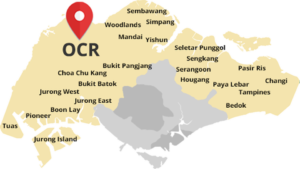
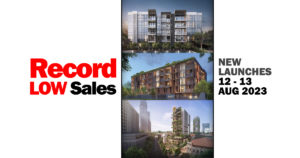

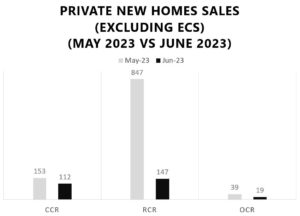
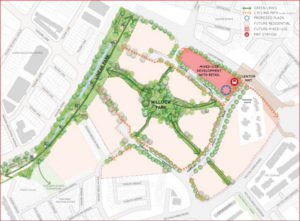
Hi
Am a Malaysia with Singapore PR.
Have owned a condo since 20 years ago.
What will be stamp duty be for 2nd property ?
Let’s say $1m project for example
If you are planning to buy the next property as a 2nd property, you can refer to the ABSD rates provided in the article. Buyer Stamp Duty applies.
If I purchase a property via my Pte Ltd company, do I pay BSD and 25% ABSD for every property purchase?
Yes, you are right.
Hi, I’m a foreigner buy my spouse is a PR. What are the possible scenarios for me?
1) Put my spouse as the sole owner of the property and pay 5% ABSD
2) Co-own the place, what is the ABSD? 20%?
Hi Eric, apologies for the late response. You are right on your scenarios.
I intend to buy a resale condo (01 April), and I would sell my 1st HDB flat (01 May) .
In between of this period what is grace period for me claim back the ABSD stamp fee?
Hi Ella, the period is 6 months.
I am a foreigner and I would like to buy an executive condo of 6,00,000 SGD worth. What will be the estimate amount for ABSD and BSD. What is the property tax that I should pay yearly. Is there any redemptions if I hold an Employment pass.
on your computation of ABSD for foreigner, you had 15% off the $2,000,000. Dont you have to deduct $5400 from this formular? or otherwise, do a breakdown of first $180,000 x1% and thereafter ?
thank you
Hi Jac,
ABSD is 15% off from the purchase price or market value, whichever higher.
It is the Buyer Stamp Duty has the breakdown of 1st S$180,000, 2nd S$180,000 and remaining. The $5,400 is the sum of the buyer stamp duty for the 1st and 2nd $180,000. It is more of a shortcut method to calculate the buyer stamp duty. However, if the property price value is lower than $360,000, the shortcut method does not work.
Regards,
Edwin Goh
Hi , may I check if presently I have a 1st property HDB flat . And now I booked another new launch condo . I knew I have to pay another if 7% +-3% for my this 2nd property stamp duty .
As such , Can you tell me as of when I could claimed back my 7 % stamp duty fee if my 1st property is sold ? I knew it’s 6 Mths period .
But I am not clear Jie as of when ?
The period of claiming back is based on which stage ?
1. Upon my first property sold , 6 Mths lead time ?
Please advise !
Thank you
Ng
Hi Ng,
Based on the available information you have provided, you may apply for refund of ABSD once you have gotten your “Sale and Purchase Agreement / Assignment to sell” for your 1st property.
Our answer above is based on typical ABSD refund scenario, so it may be wise for you to check with your property agent or legal adviser for best course of action for your specific case.
Regards,
Edwin